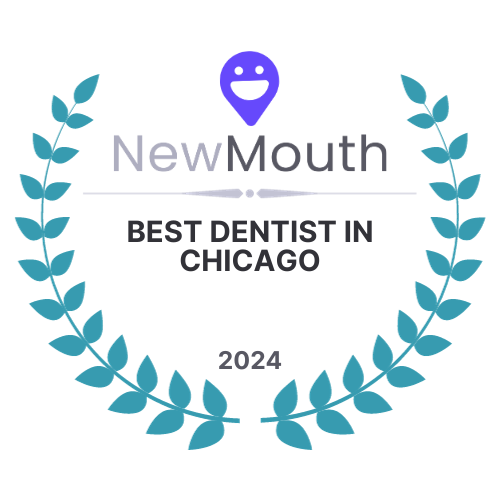Food for Oral Health: Five Foods to Avoid and Their Teeth-Friendly Alternatives
Breaking Down the Stains: A Guide to Whitening The History of the Toothbrush
It stands to reason: your teeth are critical to the ingestion of food, so why wouldn’t food be critical to the health of your teeth? Just like with the rest of your body, the food you consume can have positive or negative affects on your oral health. Here we’ll take five foods that are best avoided and give you some healthier alternatives.
The bad: Gum with sugar Gum in itself can be a great habit. It loosens food that gets stuck in teeth and helps stimulate saliva production, serving to clear the mouth of bacteria and acting as a buffer for acid that may be eroding teeth. However, when sugar is present in the gum, these effects are essentially negated. Sugar is left to sit on the teeth, which - as discussed in 5 Habits Your Dentist Wants You to Break - causes decay, leading to cavities and other serious oral health problems.
The good: Xylitol Gum Not only is this gum free of the sugars often added to food products, but it’s sweetened with Xylitol, a natural sugar extracted from a variety of plants. Xylitol works specifically against mutans streptococci, a bacterium responsible for tooth decay. It effectively starves bacteria, reducing their growth and allowing the teeth to remineralize with less interruption. In short, it’s a sugar your mouth can feel good about!
The bad: Bottled water This one is pretty straightforward. Dental professionals by and large recommend a trinity of fluoride treatments to keep teeth healthy: brush twice daily with fluoride toothpaste, get regular dental cleanings that include a fluoride application, and consume fluoridated water. Most bottled waters use filtration and processing methods that remove all traces of this natural mineral, and a low intake of fluoride can result in weakened enamel and increased tooth decay.
The good: Tap water Fortunately, if you’re in an area with a public water system, chances are very good that you have fluoridated tap water to help keep your teeth protected and strong. If your local water doesn’t have the recommended amount of fluoride, look into bottled waters that add the mineral or fluoride tablets to add to your drinking water. The level you’re looking for is 0.7–1.2 ppm (.7 – 1.2 mg per liter).
The bad: Starch-heavy foods It’s easy to spot the sugar in sweets and sodas, but we’re often not as quick to associate this cavity-causing ingredient with the savory items on the menu. Items like bread, potatoes and pasta, which contain a lot of starch, begin converting almost instantly to sugar when consumed, broken down both by bacteria in our mouths and pre-digestive enzymes in our saliva. Additionally, these foods raise acidity levels in the mouth and can easily get caught in between teeth, leaving more for bacteria to feast upon.
The good: Nuts Excellent sources of fat and protein – not to mention a nice, filling snack – nuts are a great option for your oral health. Peanuts and almonds will provide a calcium boost, cashews are great for stimulating saliva and helping to clean teeth, and walnuts pack a powerful combination of vitamins and minerals (iron, thiamine, magnesium, vitamin E, vitamin B6 and zinc to name some).
The bad: Citrus Fruits Oranges, lemons, grapefruits – while they’re providing you that much needed Vitamin C, they’re also giving you quite the dose of citric acid. This acid is powerful enough to have become a popular cleaning agent, so imagine what it can do when left on your teeth! To avoid enamel erosion and the other ills of acid exposure, rein in your citrus consumption. When you do indulge, eat quickly and rinse with water afterward.
The good: Cucumbers and Crunchy Veggies Instead of a citrus snack, consider trading up for crunchy vegetables like carrots, celery and cucumbers. High-fiber raw vegetables are natural scrubbers for your teeth, helping to remove buildup while you eat. Veggies with high water content will also help to neutralize acid in your mouth and lessen its negative effects. Above and beyond these benefits, cucumbers are particularly good for your oral health. They help fight diseases of the teeth and gums, and are especially helpful for people with periodontitis.
The bad: Gatorade By now we’re well versed in the evils of sugar and acid on the teeth, and know them to be present in sodas, juices, energy drinks and the like. Gatorade definitely falls into this category, but what’s more troubling is that studies have shown Gatorade to erode enamel even faster than some of its counterparts. While these studies are certainly not conclusive that Gatorade is worse, it’s pretty clear that it’s no better. If you’re an athlete using Gatorade as replenishment, you may want to check out coconut water instead – an all-natural beverage that’s been shown to effectively re-hydrate after exercise (but be careful! Keep coconut water consumption to only after intense activity).
The good: Milk If Gatorade is just another beverage for you, and not needed to restore electrolyte levels, try switching things up with a glass of milk. The calcium and phosphates present (not to mention Vitamin D in enriched milk) strengthen teeth and the surrounding bone structure. The casein, whey proteins, enzymes and antibodies in milk all have strong antibacterial properties, which aid in cavity prevention. If you’re lactose intolerant, consider a dairy-free alternative of enriched almond milk, fortified with many of the vitamins and minerals that make traditional milk so great.
